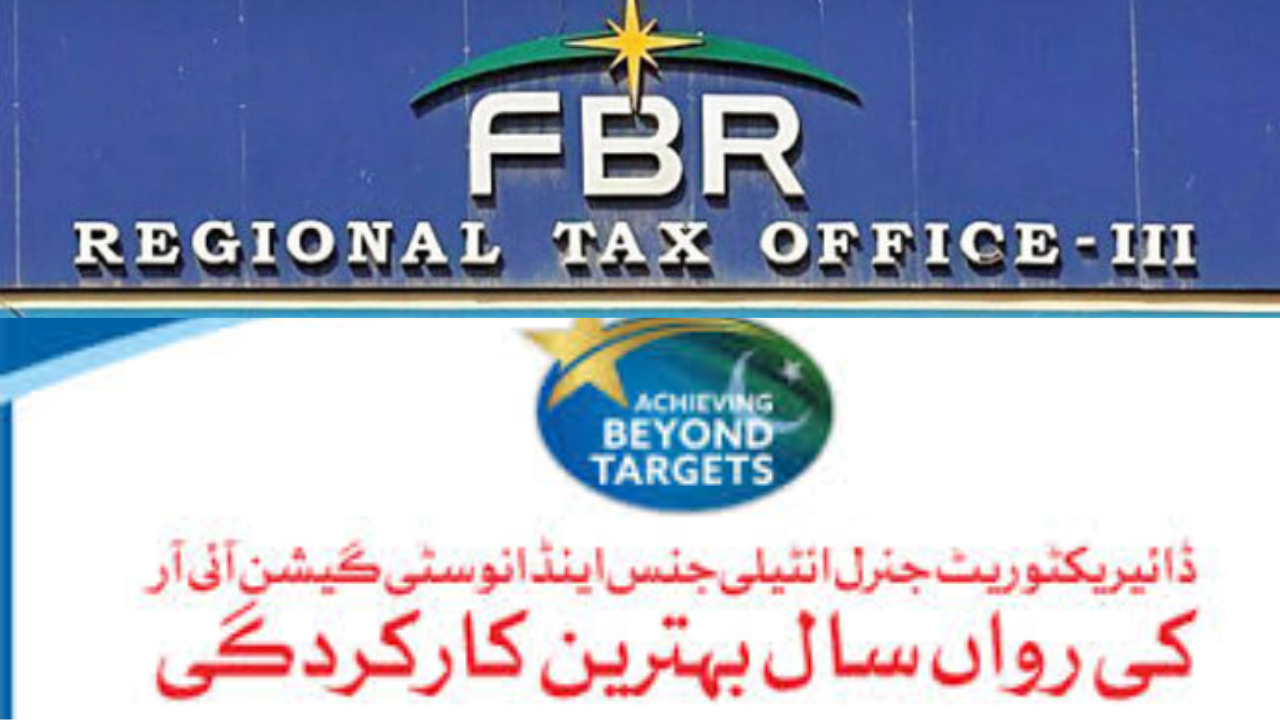Pakistan’s Federal Board of Revenue (FBR) is stepping up efforts to curb tax evasion, focusing on high-risk industries such as retail, real estate, and tobacco. As part of its agreement with the International Monetary Fund (IMF) under the Extended Fund Facility (EFF), the FBR has committed to deploying strict measures to plug revenue leaks and broaden the tax base.
Key Highlights of FBR’s Anti-Evasion Drive
In its latest report, the IMF outlines several initiatives Pakistan’s government will undertake to improve tax compliance and increase revenue collection. The initiatives focus on using technology, tightening regulations, and improving enforcement mechanisms.
📋 Quick Summary: FBR’s Tax Enforcement Plan
| Focus Area | Planned Action |
|---|---|
| High-Risk Taxpayers | CRM system to identify evaders in retail, real estate, and corporate sectors |
| Auditing | Increase the number of audits and tax officers |
| Retail Sector | Expand POS system coverage to capture more retailers |
| Import Declarations | Scrutiny of irregular import patterns |
| Tobacco Industry | Track-and-trace implementation, bonded warehouses, HS code audits |
| Smuggling Prevention | Strengthen border and checkpoint controls, especially in northwestern Pakistan |
📌 Using CRM Systems for Tax Monitoring
Targeting High-Risk Sectors
The FBR will utilize its Customer Relationship Management (CRM) system to identify tax evaders in three major areas:
- Retail
- Real Estate
- Corporate Businesses
This tech-based surveillance will allow the board to focus on non-compliant individuals and businesses that are otherwise flying under the radar.
How to Apply for the Prime Minister’s Laptop Scheme for Students: A Comprehensive Guide
Scaling Up Tax Audits
To boost enforcement, the number of auditors will be increased significantly. These auditors will conduct focused investigations in high-risk zones, ensuring strict compliance and penalizing defaulters.
🛍️ Expansion of POS System in Retail
One of the major strategies to improve revenue collection from retailers is the expansion of the integrated Point-of-Sale (POS) system. This will ensure:
- Real-time tracking of sales
- Transparent invoicing
- Better VAT compliance
Retailers who fail to integrate with the POS system may face legal action or penalties, further reinforcing the seriousness of the initiative.
📦 Monitoring Imports for Irregularities
Preventing Under-Reporting at Borders
The FBR plans to monitor import declarations more rigorously, especially from traders showing unusual patterns. This step is crucial for identifying under-invoicing and misdeclarations that result in massive revenue loss.
Strengthening Anti-Smuggling Efforts
A renewed focus will be placed on anti-smuggling operations, particularly in areas known for illicit trade, such as Pakistan’s northwestern regions. Checkpoints will be reinforced, and suspicious cargo will be flagged for inspection.
🚬 Crackdown on Informal Tobacco Market
The tobacco sector, especially its informal segments, has been a major source of tax leakage. The FBR aims to seal these gaps with a set of targeted strategies:
Key Measures in Tobacco Regulation
- Auditing of acetate tow imports to prevent misclassification under incorrect HS codes
- Mandatory bonded warehouse use for acetate tow
- Restriction of imports to licensed tobacco and filter manufacturers
- Ban on transit imports of acetate tow to Afghanistan to stop illegal cross-border movement
These actions are expected to dismantle smuggling networks and bring non-compliant players into the formal tax net.
📈 Track-and-Trace System Enhancement
To further boost accountability in the tobacco industry, the FBR is committed to enhancing its track-and-trace system. This system allows real-time tracking of production and sales, minimizing opportunities for tax evasion.
Operational Efficiency Boost
- Increase the reach of the track-and-trace program
- Accelerate anti-smuggling patrols
- Improve checkpoint monitoring on key transit routes
🇵🇰 IMF’s Role in Enforcing Reforms
The IMF’s review under the EFF program outlines that Pakistan must continue these tax reforms to unlock future funding tranches. Among the conditions are:
- Increased tax compliance through technology
- Transparent audit trails
- Eliminating grey markets in high-revenue sectors
Failure to meet these conditions could lead to delays in IMF disbursements, putting Pakistan’s economic recovery at risk.
🧾 Support for Broader Tax Reforms
In addition to these enforcement measures, the FBR is also working on long-term tax reforms. These include:
- Broadening the tax base
- Digitizing revenue collection
- Public awareness campaigns to encourage voluntary compliance
🔚 Conclusion: Toward a Fair and Transparent Tax System
The Federal Board of Revenue is taking robust and multi-faceted steps to combat tax evasion, especially in sectors historically prone to underreporting and illegal practices. From expanding digital tracking to strict audit controls, these measures are crucial for:
- Boosting national revenue
- Meeting IMF obligations
- Reducing fiscal deficits
As Pakistan moves forward, these reforms could lay the groundwork for a stronger, fairer, and more accountable tax system.
